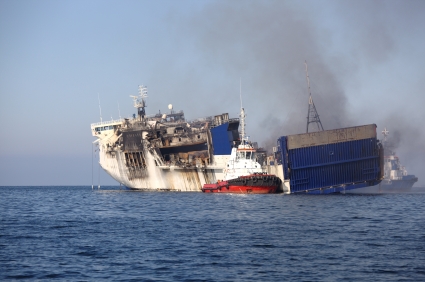Maritime global critical infrastructure – Project Overview


Responsible risk governance of Global Critical Infrastructures (GCI) requires a broadened perspective to creatively manage risks in increasingly complex, stressed systems. It can help improve resilience and the capacity of stakeholders in the Straits to cope with surprises. This may be accomplished by being proactive in the development of prevention, preparedness, response and recovery strategies to deal with known, uncertain and unknown hazards (adapted from IRGC, 2005).
In 2009 and 2010, the project sponsored expert workshops in Kyoto, Japan, to provide a neutral platform for dialogue between relevant stakeholders and for the development of recommendations. The workshops convened participants from North and Southeast Asia and India, as well as from academia, industry, government and non-governmental organisations.
Project outcomes


